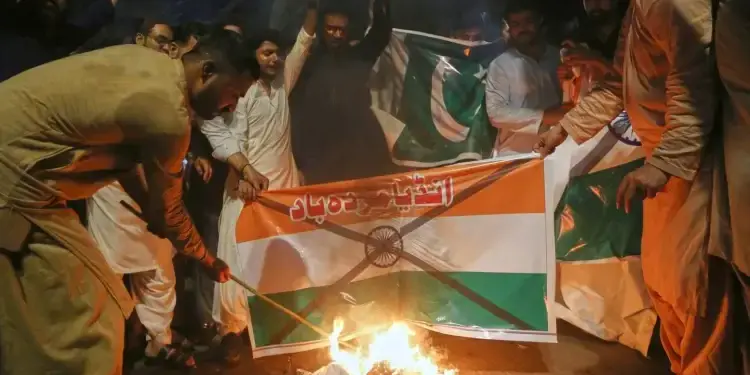On the night of Tuesday, 6 to Wednesday, May 7, 2025, India and Pakistan clashed militarily along the disputed border in cashmere, in their most serious confrontation in two decades. At least 34 people were killed overnight, including 26 civilians in Pakistan and 8 in India, in a series of air strikes and artillery exchanges.
This new conflagration was triggered by the attack on April 22 in Pahalgam, in the Indian cashmere, where 26 men were killed. India attributed this attack to groups based in Pakistan, which the latter immediately denied. During the night of May 6 to 7, the Indian army bombed several sites in Pakistan, claiming that it has destroyed nine terrorist camps, especially in the Pakistani and pendjab regions.
According to the Pakistani army, these strikes left 26 dead, 46 injured, and caused damage to the hydroelectric dam in Neelum-Jhelum. The Indian army deplores 8 dead and 29 injured in Poonch, an Indian border village violently targeted by Pakistani fire.
Three Indian fighter planes, including a Mirage 2000, crashed in this same night, without the causes or the fate of the pilots being specified. Pakistan claims to have shot down five enemy planes, without providing evidence.
Among the targets of the Indian strikes is a mosque in Bahawalpur, linked according to Indian information to the Lashkar-E-Taiba group (Let), already accused of the Bombay attacks in 2008 and suspected of being behind that of April 22.
The Indian response was welcomed in the streets of New Delhi, where citizens have applauded what they consider to be a “revenge” of the victims. In response, 200 Pakistani demonstrators burned Indian flags and portraits of Prime Minister Narendra Modi in Hyderabad.
Faced with this escalation, the international community is alarmed: the United States, via its chief of diplomacy Marco Rubio, called the two countries to dialogue. China and France have urged restraint, while the Pakistani national security committee met in an emergency in Islamabad on Wednesday morning.
On the strategic level, India suspended its participation in the Indus Treaty signed in 1960 on April 23, which regulates the sharing of river waters. On May 6, Narendra Modi threatened to block the waters of Indian rivers heading for Pakistan, declaring that they will now be used in the service of India “. Pakistan already accuses India of having modified the flow of the Chenab river.








